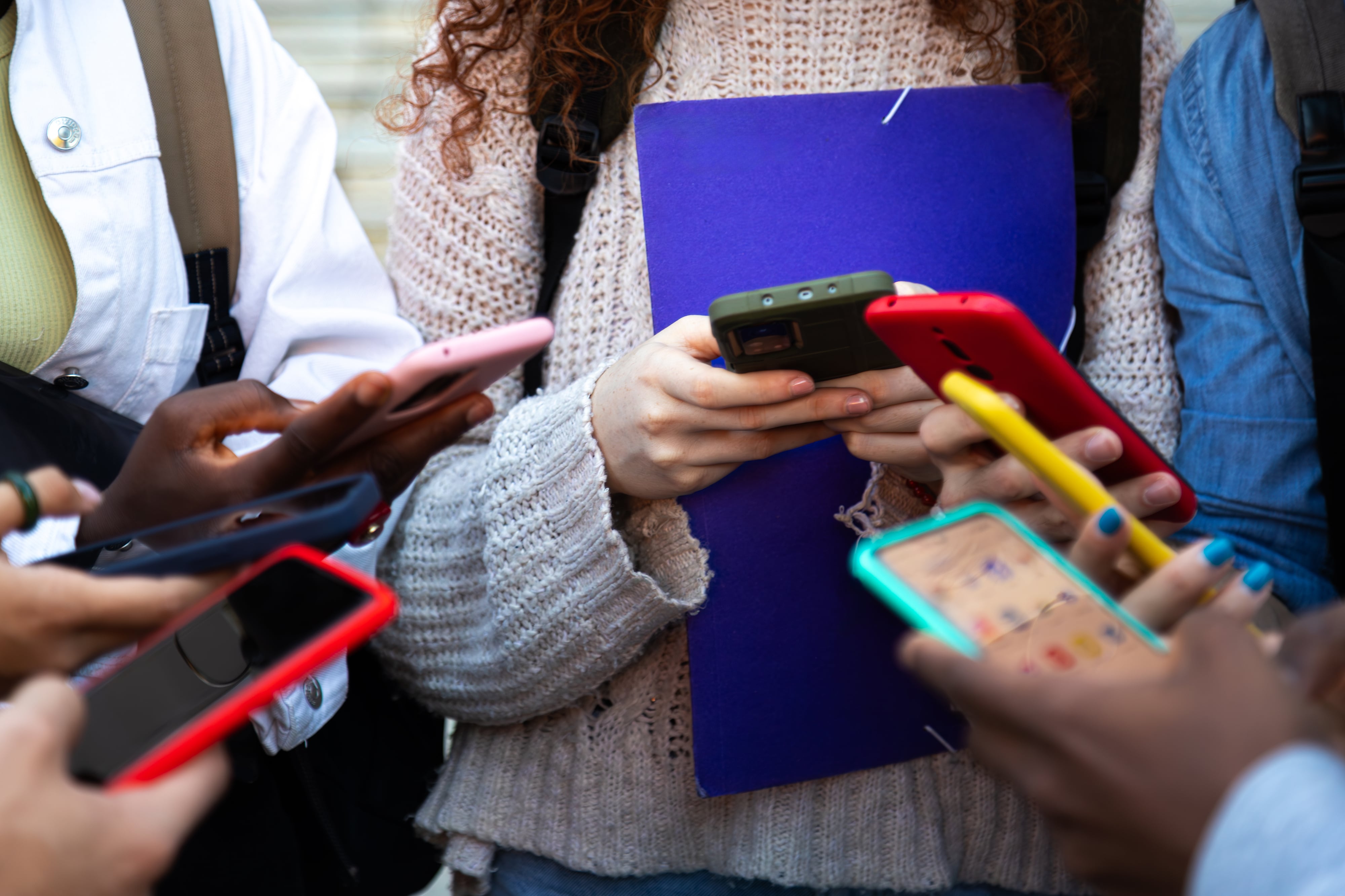Sign up for Chalkbeat Chicago’s free daily newsletter to keep up with the latest news on Chicago Public Schools.
Gov. J.B Pritzker wants to limit the use of cellphones in public school classrooms, potentially making Illinois one of several states around the country that have implemented cellphone bans.
“In conversations with educators and parents around the state – there is one thing they commonly cite as an impediment to learning in the classroom: cell phones,” said Pritzker during his State of the State address Wednesday.
“Cyberbullying has expanded at alarming rates, and it’s time for Illinois to take measures to protect our kids,” he added.
Both Republican- and Democratic-controlled states across the country have either outlawed the use of cellphones in classrooms or proposed to do so. So far, California, Minnesota, Louisiana, Indiana, Ohio, Virginia, and South Carolina are among some of the states that successfully passed cellphone bans, according to a report by the Associated Press.
New York Gov. Kathy Hochul proposed banning cellphones in classrooms last month during her budget proposal. Her recommendation included $13.2 million to help schools implement the ban. However, Pritzker’s proposal doesn’t come with a price tag.
Prior to the governor’s address, Illinois lawmakers filed several bills in the Senate and House to restrict the use of cellphones in schools.
State Sens. Cristina Castro, who chairs the Senate’s executive committee, and Meg Loughran Cappel, who chairs the Senate education committee – both Democrats – have filed Senate Bill 2427, which would require schools to create a policy prohibiting the use of cellphones during instructional time and create guidelines on how to store cellphones when in a school building by the 2026-27 school year. It also allows for some exceptions for when students can use cellphones.
House Bill 2975, filed by state Rep. Curtis Tarver, a Democrat who chairs several committees in the House, is slightly different in that it calls for the school board to prohibit the use of cellphones in school and on school property except during “lunch, recess, passing periods, or emergency situations.”
Schools districts around the state already have limitations on how cellphones can be used in schools. For example, Chicago Public Schools’ student code of conduct leaves it up to the principal to decide if cellphones are allowed or prohibited from schools.
Research shows that the use of cellphones and social media can have negative impacts on students’ mental health. According to a 2023 study, about 51% of teens spend at least four hours on social media and the use of social media makes teens more depressed and anxious.
A Pew Research Center survey found about 68% of adults support cellphone bans and 65% of adults who have kids in K-12 were more likely to support a ban. Those who support restricting cellphone use in schools said students would have fewer distractions during class time.
Samantha Smylie is the state education reporter for Chalkbeat Chicago covering school districts across the state, legislation, special education and the state board of education. Contact Samantha at ssmylie@chalkbeat.org.






